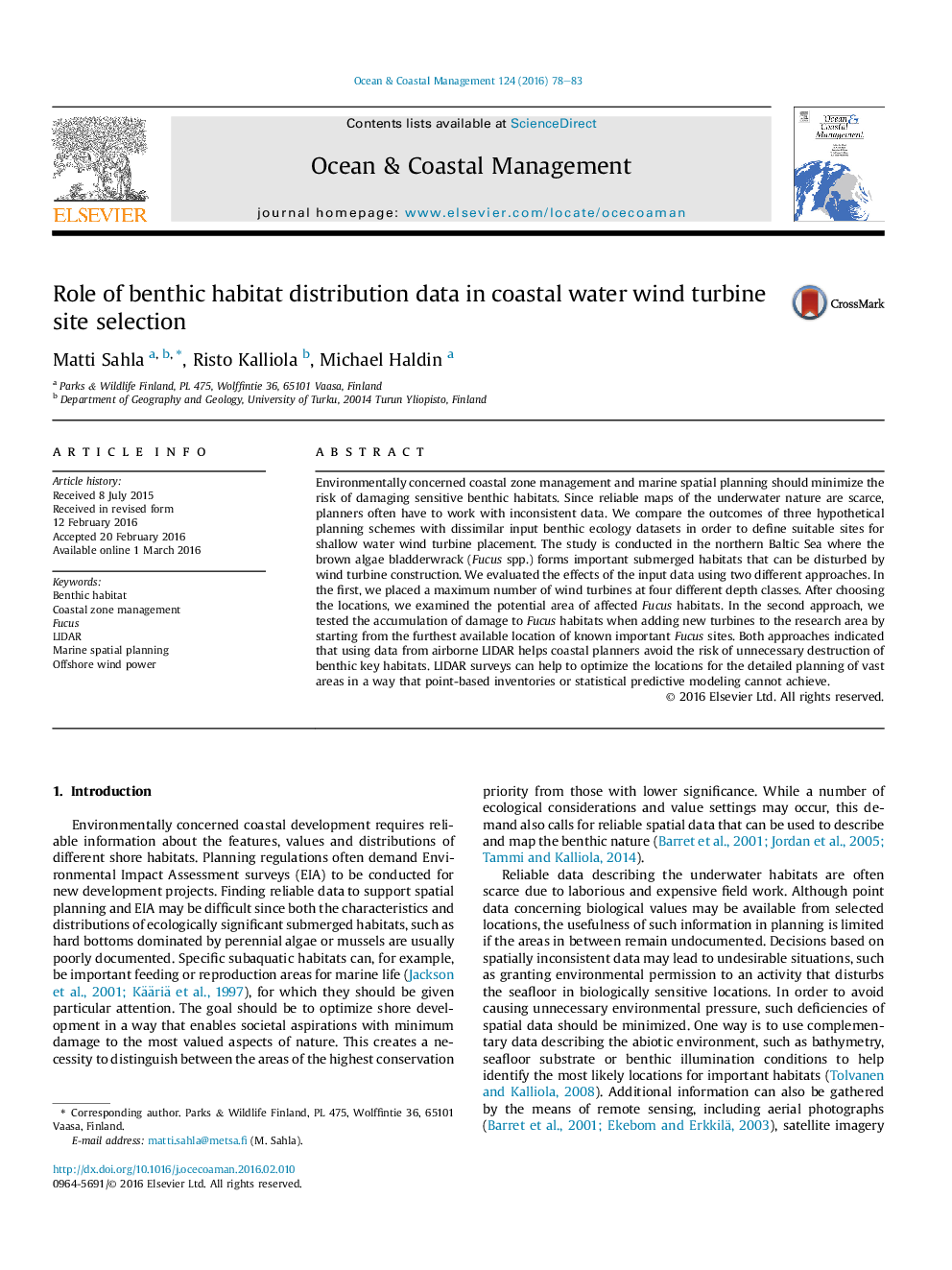| Article ID | Journal | Published Year | Pages | File Type |
|---|---|---|---|---|
| 1723371 | Ocean & Coastal Management | 2016 | 6 Pages |
•Coastal zone management and marine spatial planning should minimize the risk of damaging sensitive benthic habitats.•We compare how different kind of datasets might affect the selection of suitable sites for shallow water wind turbine placement.•We found that data from airborne LIDAR consequently helps coastal planners to avoid the risk of unnecessary benthic habitat destruction.
Environmentally concerned coastal zone management and marine spatial planning should minimize the risk of damaging sensitive benthic habitats. Since reliable maps of the underwater nature are scarce, planners often have to work with inconsistent data. We compare the outcomes of three hypothetical planning schemes with dissimilar input benthic ecology datasets in order to define suitable sites for shallow water wind turbine placement. The study is conducted in the northern Baltic Sea where the brown algae bladderwrack (Fucus spp.) forms important submerged habitats that can be disturbed by wind turbine construction. We evaluated the effects of the input data using two different approaches. In the first, we placed a maximum number of wind turbines at four different depth classes. After choosing the locations, we examined the potential area of affected Fucus habitats. In the second approach, we tested the accumulation of damage to Fucus habitats when adding new turbines to the research area by starting from the furthest available location of known important Fucus sites. Both approaches indicated that using data from airborne LIDAR helps coastal planners avoid the risk of unnecessary destruction of benthic key habitats. LIDAR surveys can help to optimize the locations for the detailed planning of vast areas in a way that point-based inventories or statistical predictive modeling cannot achieve.
Graphical abstractFigure optionsDownload full-size imageDownload as PowerPoint slide
